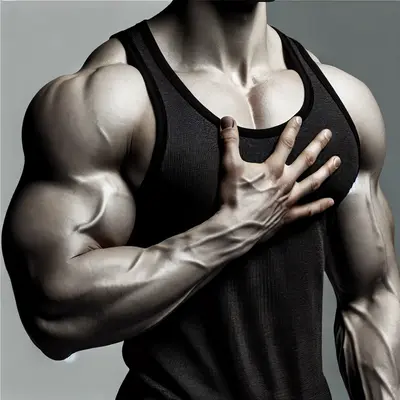For many of us, the feeling of breathlessness after a workout is normal—a sign that we’ve pushed ourselves and made our bodies stronger. But what happens when catching your breath feels especially hard, or even a bit concerning? If you’ve ever found yourself gasping for air after a session at the gym or a long run, this article is for you. We’ll discuss why this happens, when it’s normal, and when it’s time to be more concerned. Let’s dive in and understand what’s really going on.
Why Do You Feel Breathless After Exercise?
Most people feel some level of shortness of breath after exercise, especially after an intense workout. It’s your body’s way of catching up with the demand for oxygen that spiked during activity. However, there can be other reasons why breathing is harder than expected.
1. Pushing Beyond Your Aerobic Capacity
During exercise, you’re asking your muscles to work harder, which means they need more oxygen. When the demands are greater than your body’s current aerobic capacity, your breathing rate increases as your body tries to compensate. For example, Mike, a 35-year-old who recently took up running, often struggles to catch his breath during long uphill climbs. He’s just asking his body to do more than it’s conditioned for at the moment.
When Is It More Than Just a Normal Response?
Sometimes, struggling to breathe after physical activity might indicate a health condition. Knowing the warning signs can help you understand when it’s time to talk to a healthcare provider.
2. Exercise-Induced Asthma (EIA)
Exercise-Induced Asthma, also known as exercise-induced bronchoconstriction, is a common condition that makes breathing difficult during or after exercise. Symptoms like wheezing, coughing, and tightness in the chest often appear within a few minutes of stopping exercise.
According to a study by the American Lung Association, around 90% of people with asthma also experience exercise-induced symptoms, but EIA can occur even in individuals without chronic asthma.
Other Potential Causes of Breathing Difficulty Post-Exercise
3. Dehydration and Poor Conditioning
Dehydration can cause all sorts of problems when you exercise—including difficulty breathing. When you’re dehydrated, your body can’t cool itself efficiently, and your lungs may struggle to work optimally. Poor conditioning is another cause: individuals who are just starting with physical activity or those who have taken a long break may experience more labored breathing due to lower fitness levels.
4. Medical Conditions to Consider
- Heart Issues: Difficulty catching your breath after a moderate amount of exercise could point to cardiovascular issues. This is particularly common in individuals who may not know they have high blood pressure or heart disease. John, a 55-year-old accountant, started experiencing extreme breathlessness during his morning walks, which turned out to be a symptom of underlying cardiovascular issues.
- Anemia: Anemia, or low red blood cell count, can make you feel exhausted and out of breath during workouts. If your muscles aren’t getting the oxygen they need, they can’t perform as well.
How to Manage and Prevent Breathlessness During Exercise
The good news is that there are plenty of steps you can take to improve your breathing after exercise.
5. Warm Up and Cool Down Properly
Warming up gradually increases your heart rate and primes your muscles and lungs for the increased workload. Cooling down helps bring your heart rate and breathing back to normal safely. A gentle jog or stretching for five minutes can make a huge difference.
6. Stay Hydrated
Hydration is key for maintaining efficient lung function and overall physical performance. Drink enough water before, during, and after exercise to prevent dehydration. Mary, a cycling enthusiast, found her breathlessness improved considerably once she started maintaining better hydration.
When to See a Doctor
If your shortness of breath is accompanied by symptoms like chest pain, wheezing, extreme fatigue, or dizziness, consult a healthcare provider. These signs could indicate more serious health concerns that need medical intervention.
As the Mayo Clinic states: “Persistent shortness of breath, especially when it limits your daily activities, warrants a medical evaluation.”
Practical Table: Common Causes of Breathlessness After Exercise
| Cause | Description | Symptoms |
|---|---|---|
| Exercise-Induced Asthma (EIA) | Constriction of airways during or after exercise | Wheezing, coughing, chest tightness |
| Dehydration | Lack of fluids impairing lung and muscle function | Dry mouth, fatigue, labored breathing |
| Cardiovascular Conditions | Heart-related issues that make breathing difficult | Chest pain, fatigue, breathlessness |
| Poor Physical Conditioning | Insufficient fitness level leading to increased breathing | Shortness of breath, tired muscles |
Tips for Breathing More Efficiently
7. Focus on Breathing Techniques
Using the right breathing technique can significantly improve your experience during exercise. Try breathing deeply and rhythmically. The “inhale through the nose, exhale through the mouth” method works well for many. James, an amateur boxer, learned that proper breathing rhythm helped him feel more in control during high-intensity sparring sessions.
8. Build Aerobic Capacity Over Time
Cardio exercises like jogging, swimming, or cycling can help build your cardiovascular capacity, making it easier to breathe during and after exercise. It’s a gradual process, but consistency is key. If you find yourself extremely winded at first, start slowly and build up your stamina.
According to Harvard Health, “Even short periods of moderate activity can have significant benefits over time.” So, stick with it!
Listen to Your Body
Experiencing shortness of breath after exercise is not uncommon, but it should be manageable and not overly uncomfortable. Learn to listen to your body, understand its limits, and take steps to improve your conditioning. Remember that seeking medical attention for persistent or worsening symptoms is crucial for your health. With the right balance of caution and conditioning, breathing freely during and after exercise is achievable for almost everyone.









